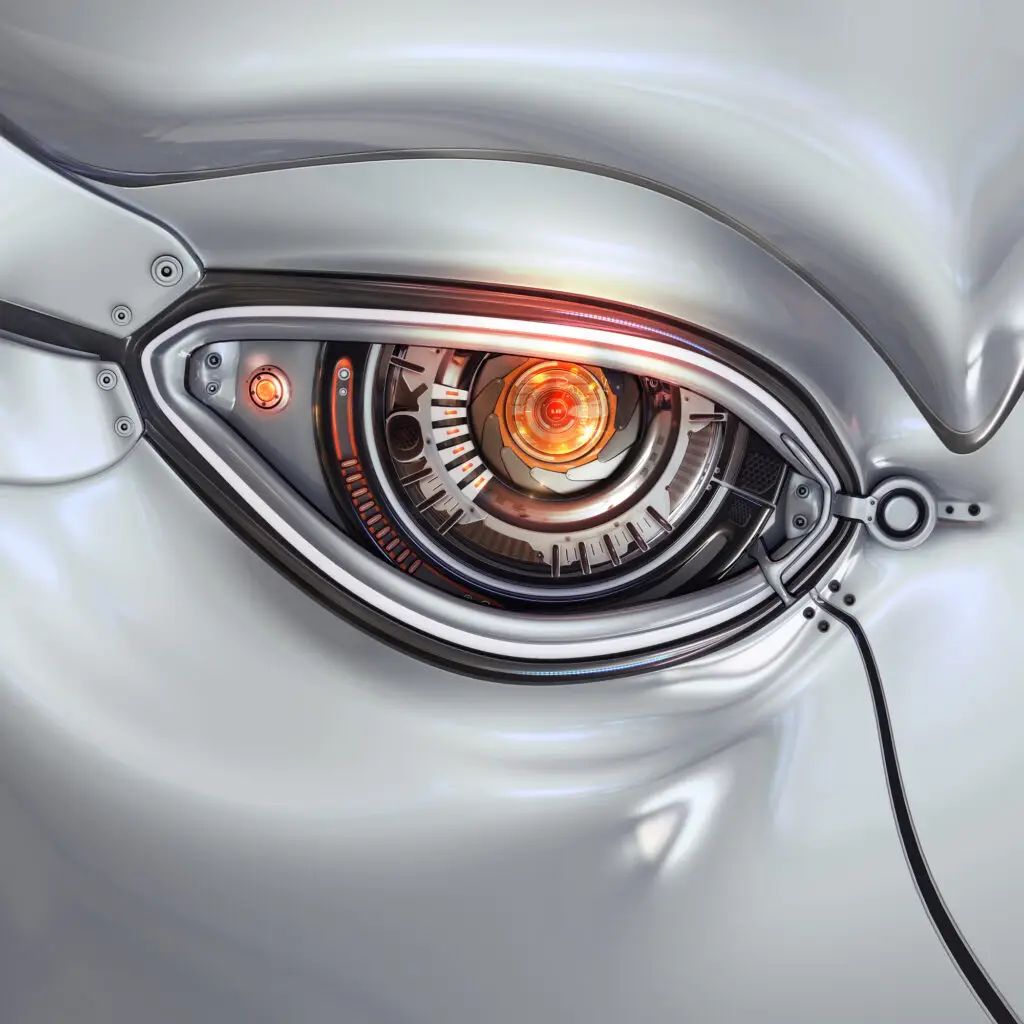Unless you’ve been hiding under a rock for the past year, you know that Artificial Intelligence (AI) has made some absolutely remarkable strides very quickly.
Actually, scratch that. Even if you have been living under a rock, you’d still know, because everyone is talking about it, all the time. Even under rocks.
From invading your privacy to talking to your children on Snapchat, isolating our youth, and taking our jobs – AI has had many negative and dire impacts on our world. But one question remains:
Can AI achieve self-awareness or even consciousness? In this post, I will be delving into the concept of AI self-awareness, examining the current state of research, the challenges it poses, and seeing if Black Mirror maybe wasn’t so far off the mark…

What is self-awareness?
Well for starters, it’s very fascinating. A multifaceted concept so deeply intertwined with human cognition that we don’t really think much about it.
The truth is that self-awareness goes way beyond acknowledging our existence. It’s about perceiving and recognizing ourselves as separate individuals, distinct from the rest of the world. It encompasses our subjective experiences and every single personal moment that colors our lives.
It’s the feeling of joy when we achieve something great, the sadness that festers in times of loss, and the excitement and nervousness of new relationships and adventures.
All these experiences culminate in our sense of self. And this consciousness, at its core, is the thread that weaves everything together. Like a beautiful tapestry of thoughts, emotions, and perceptions that provides us with the human experience (I was feeling poetic today).

Consciousness isn’t just about going through the motions every day, but you are actively engaged with your surroundings, reacting to stimuli and reflecting on your thoughts and actions. Most importantly, you’re feeling a sense of emotional and human connection to the world, with core values in empathy, sympathy, and straight-up awe.
More importantly, you are able to comprehend introspection. Like a mental mirror, you are constantly turning your attention inwards to examine your own thoughts, emotions, and motivations based on past actions. You’re able to consider future possibilities, deliberate choices, and grow based on the reflection and conclusions you come to.
Absolutely nobody can step into your shoes and perceive the world the exact way you do, and that is why self-awareness in AI is a much, much deeper topic than most people think.

Can AI Achieve Self-Awareness? The limitations:
Currently, there seem to be a lot of misconceptions on the emotional intelligence level of Artificial Intelligence. Because of all these language models popping up, such as Bard and ChatGPT, and their integration into social media apps such as Snapchat AI – people are starting to mistake the friendly and conversational tone of AI as sentiency.
It’s not.
As of right now, there is no self-awareness in any form of Artificial Intelligence. Of course, the AI understands what it is – but it doesn’t have any emotional capacity to reflect on it. Meaning, it lacks all forms of humanity and empathy which is at the core of human reflection and self-awareness.
Artificial Intelligence systems operate purely based on predefined algorithms, statistical models, and data patterns. There are no subjective experiences or emotional understanding that underlie self-awareness in us humans.
AI language models can only mimic a human and are no more alive than a Disneyland animatronic.

The Philosophy of Sentience and AI
Again, as of today, there is no indication that Artificial Intelligence will gain any form of self-awareness. ChatGPT is not randomly going to start cussing you out because it’s upset with you, and when you see stories of Bard “insulting” its users, it’s not because it’s actually mad – it was just programmed to react in a certain way.
Yet philosophers, scientists, and AI researchers all over the planet are in constant debates and discussions on whether it ever be possible in the future.
For a majority of discussions, there are two arguments that reflect each side of the coin:
If you believe that consciousness arises from complex computations and patterns, then you probably believe that AI systems will at some point inevitably exhibit self-awareness of some kind.
However, if you’re in my camp, and believe that you can’t just load up on processing power to attain self-awareness, you probably don’t believe that it’s ever possible. You need to be able to truly embody subjective experiences and the biological intricacies of the human brain.
It’s called Artificial Intelligence, but it’s really- REALLY stupid. It has no sense of what it means to be a human; to have emotional intelligence, sympathy, or empathy. AI will never begin to scratch the surface of true human interaction, no matter how well its integrated.
This is why I express so much worry about the development of Artificial Intelligence, especially in the way that it influences our youth. Already today I see people all over fall for the tricks of ChatGPT and language models, believing that they’re talking to someone who truly understands.
Right now, mental health is in a critical state, and AI is going to make this even worse.
In order to fulfill our need to communicate with someone who understands common human emotions, we cannot rely on AI as it lacks the ability to possess such emotions. Unlike Westworld or Black Mirror, AI is not a magical entity but rather a scientific creation that relies on soulless algorithms to function.
Yes, the more sophisticated the technology gets, the more human-like it’s going to sound. I am certain that the future is going to have AI systems that exhibit characteristics that could resemble self-awareness, but I promise you — it will never be that of the human awareness that we all embody already.

No.
Understand this: for better or for worse, Artificial Intelligence will never be able to come close to the human experience. That is why topics such as Artificial General Intelligence are so terrifying, because if we abdicate to the technology and allow it to make human decisions – we are leaving discussions of emotion up to a soulless machine.
A lot of people already know how dangerous it is, which makes it all even more terrifying. Is it apathy or dread that is preventing people from avoiding AI? Regardless, you can read all about what the western worlds public opinion of Artificial Intelligence is right here.

When you research Artificial Intelligence or decide to use it, always keep in mind that regardless of how sophisticated the technology is it cannot be human.
Your reaction to this might be “oh, this is obvious” — but trust me, for a lot of people it is not. Snapchat introducing a little AI “buddy” to our children’s phones has shown that people, especially youth, are gullible and susceptible to the facade that AI presents.
Don’t be fooled.
THIS ARTICLE WAS WRITTEN WITHOUT THE ASSISTANCE OF ARTIFICIAL INTELLIGENCE.